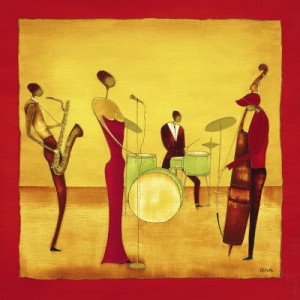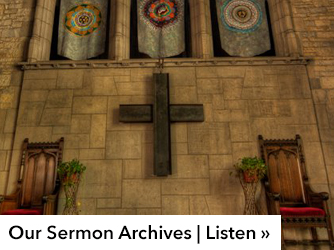I don’t do well at the symphony.
It’s not that I don’t like them (in fact, I love them), but they become a bit tedious for my over-active brain. The big thing is: I never know when to clap. You’ll have to remember I am a member of the hip hop generation; we are used to yelling at concerts during the performer’s verse (that actually excites them/us). And hip hop came from R&B, Soul, and Funk music, which are just huge sing-alongs. Then of course, my musical Mount Rushmore has Michael Jackson, who made people faint from screaming so loudly, and The Beatles, who had to stop touring – like, forever – in 1966, because they couldn’t hear themselves anymore (there were other reasons). So at operas, I hear something great and I want to let the person know how awesome it was. As I have discovered, that is looked down upon. The tension mounts to the point that I am not even listening to the last few minutes of a movement. Instead I’m looking to the person next to me to see when it’s okay to applause.
Does this sound at all like church to you? For the record, the answer is: whenever you want to. For some people, it’s not their style to clap in church: you are probably more contemplative in your worship. I sometimes see your face when someone else starts clapping; you look bothered. Don’t be: this is their way of showing appreciation to God for what is happening to them in that moment. My church experience was always like that – the Amen! was always like an “I hear you God” and less a “You’re doing a good job.” It was and continues to be (for me anyway) a way of responding to the Spirit of God in the moment. Some people raise their hands. Some people call-and-respond. Some people sit and take it in. There’s room for it all in a dynamic worship space. It’s all about style.
*Now, about Easter…*
Easter is one of those transcendentally significant moments that we often miss for one of two reasons. Either (one), we are so busy talking and doing that the moment itself has no spiritual meaning (“it’s just Easter”), or (two), we are so drenched in contemplation of the moment that we respond by simply do nothing; remember those women in the tomb in Mark 16? On either side of this, Easter can come and go without leaving its intended impression on the minds and hearts of people and a community.
Let’s begin here: Easter is not a day. It is a season. The Easter season lasts for 50 days – leading up to Pentecost – where the Church is called to respond to the discovery of Jesus’ resurrection. It is a time to look at all the subtleties and anxieties of life and say, “Yes, I am overwhelmed, but He is Risen!” It is a time to breathe fresh air into old problems and speak life into dead situations. Eastertide is in the Spring, appropriately, because it is time to pour the water of the Spirit on dry grounds. Now is the time to dream – for yourself, your family, and this community. For the body is not in the tomb: surely nothing is impossible with God! (Now is the time to tell yourself that over and over again). In music-speak, Easter is the season when the wilderness “movement” has ended, you look around, and yes, it is okay to clap.
It is right to be enthusiastic about this time – not only on Easter Sunday but also for the next 50 days (and beyond, if you’re feeling froggy). There has to be a moment in the mundane and ordinariness of life – the tense, the dry, the uninspiring daily milieu – to be happy. There has to be a space and a time for you to show some enthusiasm without someone blowing your candle out *wink wink* *nudge nudge* EASTER SEASON.
It’s not Hip Hop or Rock ‘N Roll: you should be quiet sometimes and listen (that is what Lent is about). Nor is it classical symphony and opera: you should be active more than when everything is already done. For me, Easter (and the Christian faith, in some respects) is like Jazz music. At a Jazz concert, the attention is on stage but there are moments to participate. And there’s this thing called the “solo” (that didn’t need to be in quotes J) where the musician plays intensely, and everyone draws special attention: we listen harder, we take in the song deeper. The artist is showing us mastery, an intense display of skill and grace with the instrument in hand. And for those moments, we don’t do anything. But afterwards, in hearing such wonder and experiencing such profundity, we burst into applause. Has the music stopped? No: it’s back to the refrain. But even while the music is playing, we get excited. The last thing you want to do in that moment is nothing: that’s rude and unappreciative.
This is what this Easter season is about: a time to dress jazzy and respond jazzy. The music has not stopped. But the life, death, and resurrection of Jesus – that solo act – is such a display of overwhelming mastery (by a mighty God!) that we ought to be excited! Jesus overcame death! Nothing is impossible! Nothing is impossible…it is only impossible for us to do nothing.
How will you respond to the solo? The Cross has given us permission to applause and get to work, permission to dream and be happy again. Find that space. Don’t worry about November: enough will happen for us to need to do this again next year. For now, enjoy the opportunity Easter provides us: to refuel and replenish our joy. Who knows? Something good may happen.
Love,
Pastor Julian


